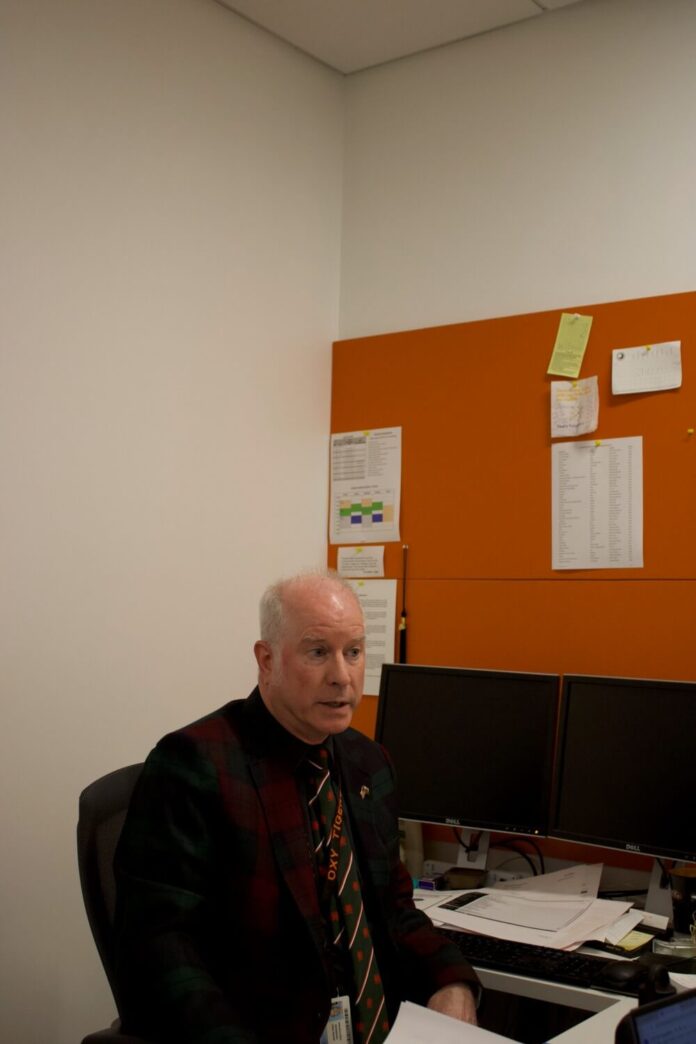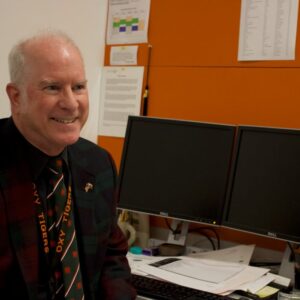
Before finals week of the Fall 2022 semester, Clio Catalani Morata de Jong (first year) was faced with a decision: take a major-required class Satisfactory/Unsatisfactory (S/U), or allow the grade to affect her GPA. Despite going to office hours and peer tutoring, de Jong entered finals week with a prospective C in the class.
De Jong decided to take the class S/U, and the “S” she received meant the completion of a major requirement without the class affecting her GPA.
“I was really struggling with the concepts,” de Jong said. “It felt really, really comforting to me that I had the S/U as an option. And my GPA is still really high because of it.”

According to chemistry professor Chris Craney, the future of the policy is uncertain. Craney said the Faculty Council ran a survey which showed that three quarters of professors were not in favor of the current policy.
According to James Herr, academic affairs director, S/U grading is a college policy that was implemented at the beginning of the COVID-19 pandemic as a way of recognizing the difficulty of the pandemic for students. Starting in the 2021-2022 academic year, students could select one of their courses to be graded as S/U, receiving an S for a letter grade of a D or higher. The grade counts towards major, minor and core requirements and does not affect students’ GPA. According to Herr, the policy is reviewed each year by the Academic Policy Committee, and the future of the policy is currently under discussion.

According to history professor and Faculty Council President Sharla Fett, the council has been surveying faculty and student opinion on the continuation of the policy as the college slowly returns to a sense of normalcy. According to Herr, the data has been sent to the Academic Planning Committee, which will meet later this year to decide the future of the policy. Herr said the Credit/No Credit policy will remain in place, but classes taken Credit/No Credit do not satisfy major, minor or core requirements.
“In thinking through this decision, it is important to take account of the perspectives and experiences of everyone affected by the policy, including students and faculty,” Fett said via email.
Many students have been taking advantage of the policy in the two and a half years since the pandemic outbreak. Nate Hall (junior) chose to use the policy twice during the 2020–2021 academic year, which was fully online. Hall said he used the S/U policy to end a class with dignity.
“It lets students finish a class and still learn from the experience without having the grade weigh on them,” Hall said. “It threw them a lifeline.”
Hall and de Jong said they agreed that the policy should be kept or modified rather than taken away.
“I think that just because the pandemic has pretty much died down doesn’t mean that it needs to be taken away,” de Jong said. “It’s a safety net.”
However, chemistry professor Raul Navarro said the policy blurs the line of supporting students. According to Navarro, the students in his class choose S/U for a variety of reasons, from covering up a B to freely disengaging from the material.
“You start to get students who start just turning in assignments late, and then that turns into not turning in assignments, or not showing up to class,” Navarro said. “You’re wondering, ‘What’s going on? Am I doing what I can to support this student?’”
According to Navarro, while he appreciates the flexibility the choice gives students, an “S” does not show mastery in the subject, as it can represent a D or higher.

According to Craney, the grading policy can cause problems when applying to graduate programs or transferring colleges. Craney said he has received emails from students asking him to report an actual grade for graduate school programs.
“The schools expect [students] to have at least a C, what does the S mean?” Craney said. “I’ve had to write a couple of letters explaining what’s going on, and I’ve actually had to bounce a few [requests for grades] because of FERPA regulations.”
FERPA, the Family Educational Rights and Privacy Act, protects student information from being shared without their consent.
Herr said the policy was implemented to alleviate student anxiety. He said there are also other academic resources available, such as the Credit/No Credit policy and petitioning for a grade of “incomplete.”
“What I recommend is students talk to their academic advisor about their individual circumstances,” Herr said. “There’s no ‘one size fits all’ here.”
According to Herr, the S/U policy is here to stay for the First Year Seminar (FYS). He said the college has already been contemplating a new FYS grading system for years. According to FYS professor Devin Fromm, the new system of grading has been a success. With no grade involved, Fromm said his students are encouraged to experiment and safely develop their writing skills without relying on what they already know.
“I really like the equity aspect of it,” Fromm said. “There’s a blatant unfairness in giving out lasting grades based on what students have already been trained to do.”
Physics major Ruby Berke (junior) said her use of the policy has not negatively impacted how she treats her classes but opens a discussion about the hyper-focus on grades.
“If we developed a way to be more caring, compassionate, empathetic to students, why would we let that go?” Berke said.
Contact Sebastian Lechner at slechner@oxy.edu.
![]()






























